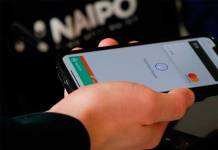
Keeping track of your credit status is important. After all, a healthy credit score is what helps you secure loans for big-ticket items like a home or car. Your credit score can also affect your ability to rent an apartment or even get a job. With so much riding on your credit, you need to find a way to monitor it anytime — like with an app.
Searching for the right app to help manage your credit can be complicated. You likely have certain needs, and not every app provides the features you might want. You’ll want to consider exactly what kind of tool you need to help reach your financial goals. Take a look at the six examples below to explore what types of apps can fulfill your specific credit needs.
1. Credit Usage Tracking
Debit cards take funds immediately from your bank account. Credit cards allow you to borrow funds that must be paid back later. So it can be easy to brush aside the fact that you’ll eventually be on the hook for your purchases.
Even if you spend consciously, the gap between the purchase and your bill can muddle your future financial planning. Luckily, there are apps you can use to track your credit usage, giving you immediate insight into your account.
Credit usage tracking apps help you organize and plan your credit transactions within clear boundaries. This is invaluable because it offers the assurance of financial safety when using a regular or secured credit card to build credit. By the time your monthly bill arrives, you’ll already know what you owe. That way you can have the funds available. With diligent work and monitoring, your credit card can be just as convenient as a debit card.
2. Online Banking
Your bank may offer a dedicated app that allows you direct control over your checking, savings, and even loan accounts. You can transfer between them, manage your balances, make payments, and change settings.
Some even offer bill payment services. Just like credit usage trackers allow you to monitor your credit spending, online banking does this for your checking and savings accounts. It’s a similar service, but with a focus on your direct cash flow and even savings.
Because of this, the two types of apps are perfect for hand-in-hand utilization. You can use the former for your credit card and the latter for your debit card. You can view the money that comes into your debit account online, and then allocate it for credit usage. Moving money when you need it is no longer difficult when you know how much cash and credit you have.
3. Budgeting
Budgeting involves complicated steps, research, and notetaking, so what better tool is there to use than a guided application? Budgeting is for ideal fund management — a way to set short and long-term goals for yourself. It aids you in getting the picture of how you can use or save your funds by building good habits. With a tailored budgeting application, you can conveniently improve your habits and streamline your online account management.
While using either or both of the previous app types, a personalized budget will help you prevent overspending. You already know how much you have, so now you can create a detailed plan for where it should go. A budgeting app is the second layer of protection on your credit payments. The previous apps may give you an immediate picture, but a budgeting app can help you create a long-term money plan.
4. Credit Profile Summary
It is not uncommon for credit usage tracking applications to also include features that summarize your credit profile. Still, credit usage and credit summary apps are often separate, and they consolidate different aspects of your credit. As opposed to a credit usage app’s transactional focus, summary apps give you a bird’s-eye view of your general credit profile. They can display your credit score range, loans, debts, and balances, and give insight into how to improve them.
Like budgeting apps, these are geared toward long-term improvement. Each change in your score is noted in the app. For example, the app may show what caused your score to dip or rise and give general situational advice. Knowing your full financial picture can help consolidate your goals. Having your profile in hand also gives you an idea of how to tailor your planning to improve your credit.
5. Debt Payoff Planning
There are also applications geared specifically toward planning out your debt payments to become debt-free. You could get advice from your profile summary and then consult a debt planner to put that advice into action. These payments bear a huge load on your finances, so pacing them out can make them less of a burden. The most advantageous part is that you can formulate a timeline to know approximately when they’ll be fully paid off.
Keeping on track with these payments is the best way to build your credit and help you become debt-free. Once you’re used to using this type of app, you can continue to use it even if your debts are paid off. Being debt-free is the ultimate goal, but making payments will improve your credit even more.
6. Bill and Subscription Management
This type of app is great for all the other payments you have to make alongside your debt and credit. Use these apps while doing your budget so all of your bill information is retrievable from one place. In many situations, a bill management app may indeed be all you need to keep monthly finances in check. You’ll be able to have a stronger focus on your credit because all of these payments are accounted for.
Most monthly bills, particularly those for digital services like streaming, are not reported to credit bureaus. They don’t affect your credit. If you struggle to make reported payments, you can use these apps to ascertain which services are of the least value. You might find that you’re paying for a service you’re not using. Thankfully, these apps will make changing or canceling your service a straightforward process.
Don’t worry if you have trouble knowing everything about your financial situation. Credit can be complicated and confusing, so it’s not your fault if you get a bit lost. Still, you need to be in control of your financial future. These different types of apps are essential tools to help you do that. Even just one of them can make a noticeable difference in your credit — so don’t hesitate to get started!











